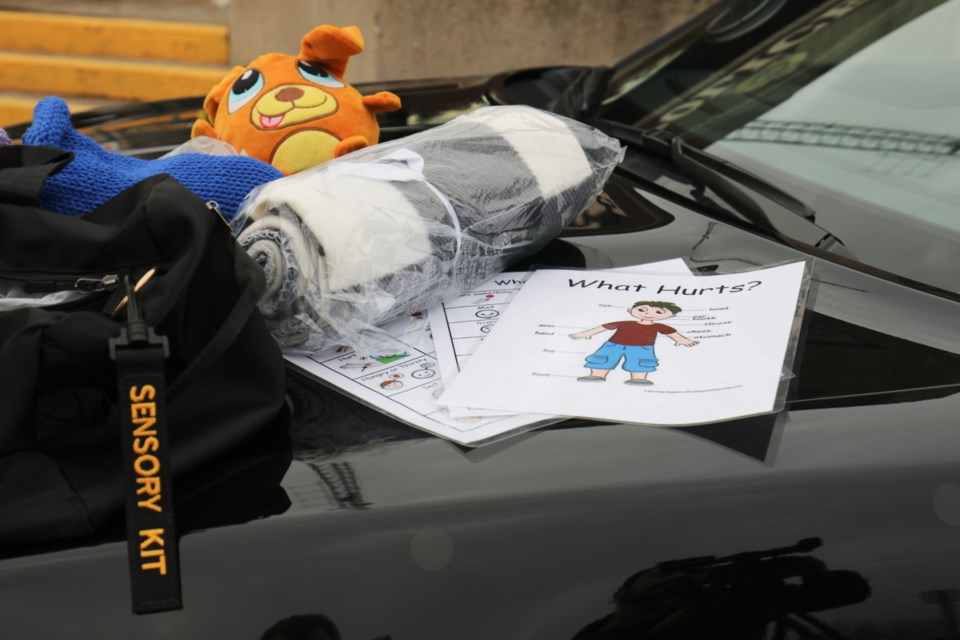Sault Ste. Marie Police Service and Algoma Autism Foundation have teamed up to make sensory kits available in patrol cruisers in order to meet the needs of individuals with autism or other sensory-processing disorders during emergencies.
Items in the sensory kits include tinted glasses, earmuffs, Picture Exchange Communication System (PECS) laminates, knitted toques in several different sizes, a soft blanket, markers, paper and a variety of toys.
Patrol services inspector Derek Dewar said the new sensory kits will help officers in situations where lights, sirens and other stimuli affect people with sensory or communication issues.
“It will be another tool for officers to better help serve the community,” said Dewar during a media opportunity at police headquarters Wednesday. “The sensory kits essentially are to help people with sensory disorders or communication issues to help our officers in high-stress times deal with people that can help de-escalate situations and better serve the public.”
Algoma Autism Foundation Director Jamie Boston said all 12 sensory kits — 11 that are already in the trunks of patrol cruisers, and one specifically for training and display purposes — were made possible solely through fundraising efforts by the organization.
“We’re not government funded whatsoever, it’s all fundraising dollars through different things we’re doing,” Boston said. It’s money well spent for us.”
Boston first caught wind of sensory kits being used by fire departments in New York state through his brother, who is a firefighter in Ottawa.
He then approached Sault Ste. Marie Police Service earlier this year about the idea, and would later work with Sgt. Jeremy Stevenson in order to fully develop and implement the kits.
“It was a bit of back-and-forth and brainstorming to get that done, specifically some of things about labelling of the kits themselves, colours of the bags — those sorts of things were all important for the officer side that we would’ve never thought of,” Boston said. “Now, when they look into the trunk of a cruiser it’s very obvious for them, they know exactly what they’re going for.”
Boston said policing has a compassionate side that some people don’t see, and the kits will serve as tools that will assist officers in situations where sensory and communications issues exist.
“Just because they can’t speak doesn’t mean they can’t communicate with you, so giving an opportunity to communicate could save lives, could do all kinds of things in support of the officer and the people that they’re deploying the kits to,” he said.
